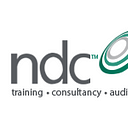WHAT IS GDPR, AND WHAT ROLE IT PLAYS FOR BUSINESS?
What is GDPR and What Value It Adds to European Citizen’s Lives?
We all live in a dynamic world that is continuously changing, evolving, and moving forward into an era of growth, success, action, and planning — the basis for all these lies in developing, following, and executing. The full form of GDPR is General Data Protection Regulation that European leaders have designed to perform their central processes, tasks, and other duties.
The European Union back in 2018 launched a privacy regulation policy that aimed at changing the nature of the collection, storing, and using customer-generated data across its listed set of countries.
The GDPR gap analysis has been a critical component of this regulation policy introduced by the European Union that focuses on getting a closer look at data generated and used by companies. The GDPR policy has been met with open arms across the European countries and governs different arenas of privacy laws over EU and EEA regions.
As per the current amendments, GDPR is expected to exercise its dominance over all companies that are selling and storing personal information about citizens spread across Europe, including organizations that operate on different continents.
GDPR has been a preventive body that has aimed at giving control back to citizens over their personal data and giving out assurances that their delicate information is being protected across Europe.
Understanding the Business Implications of GDPR
GDPR as a security body has always prioritized making certain data practices for its consumers and other personnel that utilize different data sources. The GDPR gap assessment has been a vital factor in checking whether the policies are in compliance with the ones defined by the structural body.
GDPR is one of the most influential and impactful EU bodies running today that applies to all businesses and organizations that form a part of European setups. Irrespective of where the data processing takes place in the EU or not, there are specific given set of rules.
The GDPR compliance program developed following experienced personnel and a talented set of individuals looks to appoint a data protection officer that deals explicitly with taking care of aligning business policies with those implemented by GDPR.
There are strict penalties in place for organizations and companies that fail to comply with GDPR fines. The amount can be anywhere from 4–6% of annual global revenue or approximately 20 million euros for companies that don’t abide by GDPR compliance policies.
Therefore, the EU has been quite serious about undertaking GDPR ethics and abiding by its rules. A potent example of the same can be British Airways and Marriott International facing several million fines for failing to adhere to the GDPR compliance program.
As per a recent report, British Airways are facing anywhere from 200 to 300 million euros in fines for a data breach that occurred in late 2018. Moreover, Marriott International is also expected to be fined 99 million euros for a data breach taking place between 2014 and 2018.
What’s more, is that it might seem GDPR only focuses on streamlining and aligning IT practices for organizations, but it also has a role to play on customer engagement methodologies.
GDPR and Customer Engagement: How do They Work for Each Other?
GDPR has made it quite strict to obtain consent, and hence it’s vital to separate permissions ready for processing different activities. What this means for ones seeking approval is that they need to be a particular action or rather a series of steps that demands written proof.
The inception of the GDPR gap assessment and other elements have been instrumental in helping businesses come up with novel solutions that deal with changes.
GDPR has certainly changed a lot of things for companies, such as the projection of sales team prospects, the changing marketing activities, the growth parameters, and other corporational facets.
Companies now have had to review their business processes, the applications utilized by various firms, and other sets of forms that need to be in compliance with the GDPR training protocols as defined by the governing bodies.
Customer engagement in the age of digitalization has met with new and improved crossroads for enlisting the various business processes and ticking them against the boxes represented in emails.
Organizations, on their part, need to prove that consent was provided to individuals during the communication phase. This implies that data in any given field should only be accepted once it has undergone an audit trail by time stamping it with accurate practices and reporting it for the mode of contact etc.
In the B2B world, sales employees need to meet their leads and other potential customers at exhibitions. However, with changes caused by Covid-19, businesses need to seek out alternative measures.
Summing it Up!
The GDPR has been a governing body operating in European countries that set up parameters for data collection, storage, and sharing. The GDPR assessment policies have been a vital factor in understanding how companies take care of delicate information to safeguard information shared by clients.
